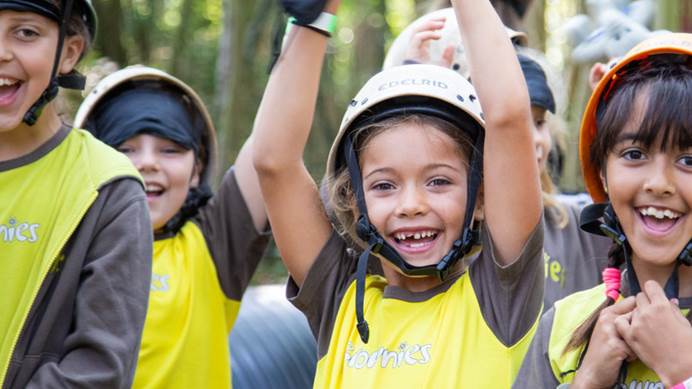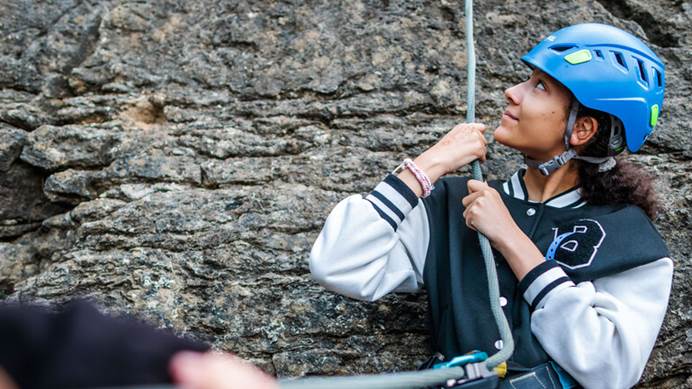Giving and managing medication
If you need to manage medication for girls on your trips, here's what you need to consider.
Sometimes, girls in your unit will need to take medication during a day trip or residential event.
Before you go
A health information form must be completed by all young members (or their parents or carers) at a girls’ event. There’s a different health form for international travel if you’re leaving the UK. Over 18s attending an event for adults don't have to complete this form. A list of non-prescription medication and remedies is included on the health information form.
Here’s what you need to remember before going away:
- Talk to the parents or carers of a young member, or the member themselves if they’re over 16, about how medication is usually given and handled and agree how it will be administered on the trip.. Units in British Girlguiding Overseas should follow whichever regulations are stricter, those of their home country or Girlguiding.
- It's important to talk about all the medication that a member needs, including more sensitive medications such as antidepressants and contraceptives. These can be a risk to others if they're taken by mistake.
- All medical conditions and medications must be treated confidentially.
- Who, at home, normally looks after the medication? If it's handled by an adult, then this needs to stay the same on the trip.
- Is the medication something that needs to be taken quickly in an emergency - like an inhaler for severe asthma? Does the young member need to keep this on them?
- Does their medication need to be stored in a certain way? For example, some medications need to be kept cool, like insulin for diabetics.
- Would the parents or carers like a written record of the medication to be kept during the trip and given to them at the end?
- 16–18-year-olds can hold on to their own, non-emergency medication. This must be clearly labelled, and the first aider needs to know about it.
- Does the young member already have an adjustment plan? If so, the first aider should refer to this when planning how medication and treatment is handled on the trip. For guidance on who can be a first aider, check the information about the event leadership team here. If you've identified some inclusion or access needs and want to know more about supporting the young member or about potential grants, then get in touch with [email protected].
- If you agree that a member over 16-years-old can handle and administer their own medication on the trip, they must understand the risks involved in sharing it with others and agree that they won’t share. They should know how to keep the medication safely where other people can't get to it.The first aider should keep in their kit an extra set of any emergency medication that young members are carrying. For example, an inhaler, emergency hypoglycaemia treatment, adrenaline auto-injector for allergies.
- All members at known risk of anaphylaxis or severe allergic reaction should carry 2 adrenaline auto-injectors.
- Communicate with parents or carers what your expectations are around medication and first aid before you go away. For a residential this could be at a meeting, or by letter for a day trip.
- If young members are running their own camp, they should be made aware of best practice around medication as part of their training.
- Will the time zone and different stages of the journey impact the medication routine and timings?
- Does the airline allow medication in hand luggage?
- Have you got enough doses to last the trip? We recommend bringing extra, just in case.
On the trip
- Medication needs must be kept confidential.
- All prescription medication (for adults and children) should be stored in a safe place. It must be clearly labelled with the name of who needs it and instructions for how often it should be taken. Best practice is to have a locked box with two keyholders or a combination padlock. Exceptions to this are medications that are needed instantly in an emergency, such as inhalers or adrenaline auto-injectors. These can be carried by the first aider as part of a grab bag and/or by the girl if she’s able to self-administer.
- All medication should be stored in a dry, clean, hygienic place, and not subject to extremes of temperature.
- Adult and children’s medicine should be in-date, clearly labelled, in original container and include instructions for administration, dosage and storage. This applies to emergency medication, prescription medication and treatments that form part of the first aid kit.
- Keep a record of every time regular medication is given. This should include what was given, how much, what time it was given and who was responsible. If a young member is managing their own medication, the first aider should be informed. Explain that a first aider needs to know what medications have been taken, in case of an emergency. You can use our medication record sheet, or keep records in your own way. Download the medication record sheet (Word).
- If non-prescribed medication (like pain relief or antihistamines) is given then check the health form to make sure you have permission and the young member isn’t allergic. Keep a record of what you give, when and why.
- If there's a serious problem and first aid isn’t enough to treat it, contact the parents, carer or other emergency contact as given on the health form straight away. Or call them after you've contacted the emergency services.
- If a group of young members are running their own camp, they need to keep a record of any medication, prescription and non-prescription, taken by members. If you find out that young members have taken non-prescription medicine without telling the first aider, you'll need to talk to them about what they've taken. And remove the medication from them.
- If a young member won't take their medication, you shouldn't force them. Follow the steps agreed in their individual healthcare plan. And contact their parents or carers to talk about other options.
- Adults can hold and administer their own medication. The first aider should be told in case of emergency. If an adult prefers to give their medication to the first aider to store, it must be clearly labelled with name and dosage.
When you get back
- Return any unused medication to parents and carers.
- Keep any medication records for 1 month after the trip.
Tell parents and carers about:
- How regular medication was managed.
- Any occasions where pain medication was given.
- Any first aid that was needed.
- Any injuries above the neck.



